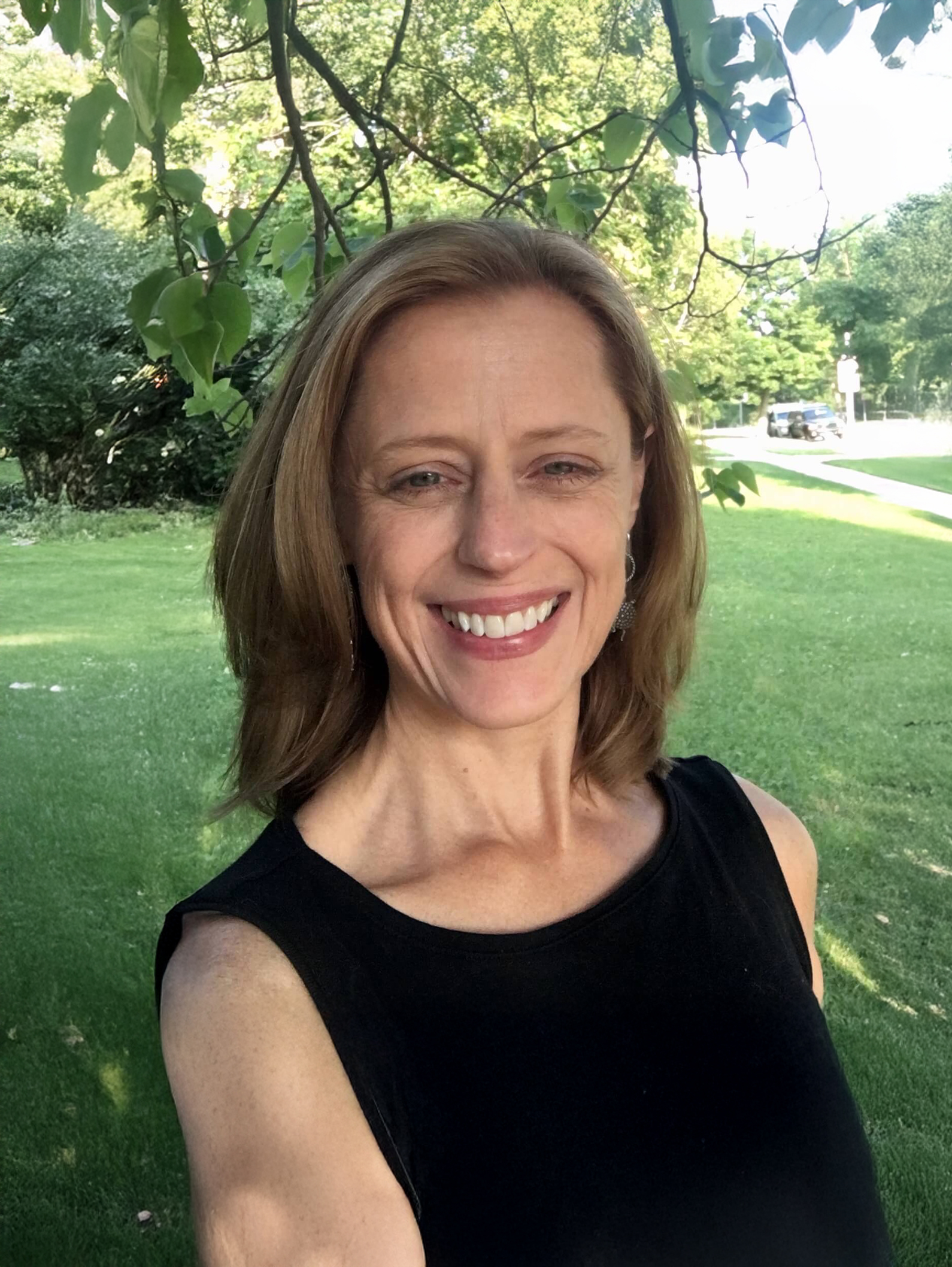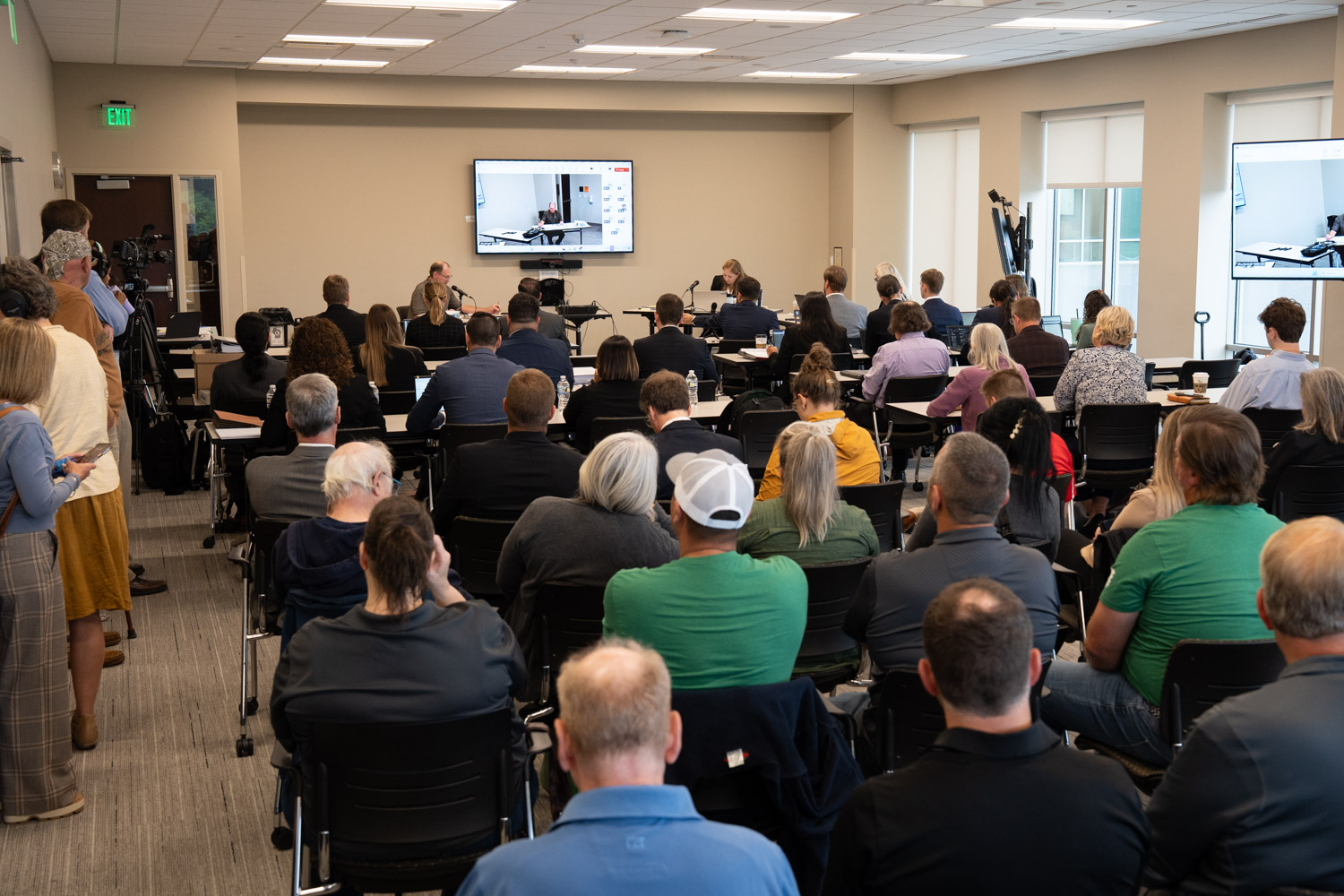Madison, Wis.— In front of a packed hearing room, expert testimony began today the legal battle against Enbridge’s Line 5 oil pipeline. The case centers around permits issued last November by the Department of Natural Resources that would allow Canadian oil giant Enbridge to clear trees, dig trenches, blast through bedrock, and fill wetlands in northern Wisconsin to make way for a new 41-mile segment of its pipeline.
Geologist William Joseph Bonin testified that the DNR failed to adequately assess the risk of construction on water resources, groundwater, and groundwater dependent ecosystems when it issued the permits.
“Blasting is going to have a larger impact than the expert reports discussed and the reason for that is the already fractured bedrock was not taken into consideration in the reports,” Bonin stated. “The effects of blasts, especially on fracture networks, may be permanent.”
Bonin criticized Enbridge’s geological boring at the site as “inadequate,” with too few taken in the drill path, and missing and confusing data. Some borings were terminated due to artesian conditions meaning groundwater was trying to flow up, with no follow-up.
“I think that the risks of Horizontal Directional Drilling were understated and that the site analyses were not done appropriately for the glacial geology and fractured rock conditions,” Bonin said.
Several members of the public also testified at the hearing, including UW Madison graduate student Tabitha Faber, who described the threatened wildlife and critical habitat she witnessed along the proposed construction area.
“The proposed reroute will cross over 100 waterways including Class 1 trout streams that are safe havens for hundreds of wetland species, including those threatened and endangered by construction projects just like this one,” she told the judge.
Testimony will resume in the case on Friday at 9 a.m. at the Hill Farms state office building in Madison.
You can find statements in support of the legal challenge from the Franciscan Sisters of Perpetual Adoration, Great Lakes Indian Fish & Wildlife Commission. Healthy Climate Wisconsin, Racine Interfaith Coalition, Th!rd Act and Women’s Earth and Climate Action Network (WECAN).
Contested Case Hearing Schedule
Note: Proceedings will begin at 9:00 a.m. each day of hearing and will take place in person. The hearing may also be observed by video and telephone via Microsoft Teams. To connect by video, use Teams on the web or the Teams app, then enter the Meeting ID: 247 227 844 895 and passcode: aK6Bt7Ye. To connect by phone, dial 1-608-571-2209, and then enter the Meeting ID: 589 521 165# when prompted.
September 5 – 12 in Madison
MEA (on behalf of Sierra Club, 350 Wisconsin and League of Women Voters) and Clean Wisconsin present their case
Location: Hill Farms State Office Building, Rooms N108 (Sept 3) and S149, 4822 Madison Yards Way, Madison, WI
September 15 – 19 in Ashland
The Bad River Band of Lake Superior Chippewa will present its case
Location: Northwood Technical College Conference Center, 2100 Beaser Avenue, Ashland, WI
September 22 – 26 in Madison
Enbridge will present its case
Location: Hill Farms State Office Building, Room S149, 4822 Madison Yards Way, Madison, WI
September 29 – October 3 in Madison
DNR will present its case
Location: Hill Farms State Office Building, Room S149, 4822 Madison Yards Way, Madison, WI
BACKGROUND:
Enbridge Energy’s Line 5 pipeline carries oil and gas from Superior, Wisconsin to Sarnia, Ontario through northern Wisconsin and both the Upper and Lower Peninsulas of Michigan.
The 72-year-old pipeline has been trespassing for more than a decade through the Reservation of the Bad River Band of Lake Superior Chippewa, which brought a lawsuit in 2019. A federal judge ruled in favor of the Bad River Band and ordered Enbridge to remove the pipeline from the Reservation by June 2026. Rather than shut down the aging pipeline, Enbridge seeks to build a new 41-mile section of pipeline encircling the Reservation and threatening the same sensitive watershed further upstream.
The construction project—which would stretch for more than 40 miles, cross nearly 200 waterbodies and impact over 100 wetlands—would cause significant long-term harm to the wetlands and waterways through trenching, drilling, and backfilling. It will also violate the Bad River Band’s water quality standards and may damage downstream wild rice beds that are a cornerstone of the Band’s identity and culture. According to Enbridge’s own expert, Line 5 could be shut down with almost no impact to gas prices in Wisconsin.
Enbridge still needs federal approval from the US Army Corps of Engineers, and no construction activity is permitted while the contested case plays out. Read more about the contested case here and about Line 5 here.

